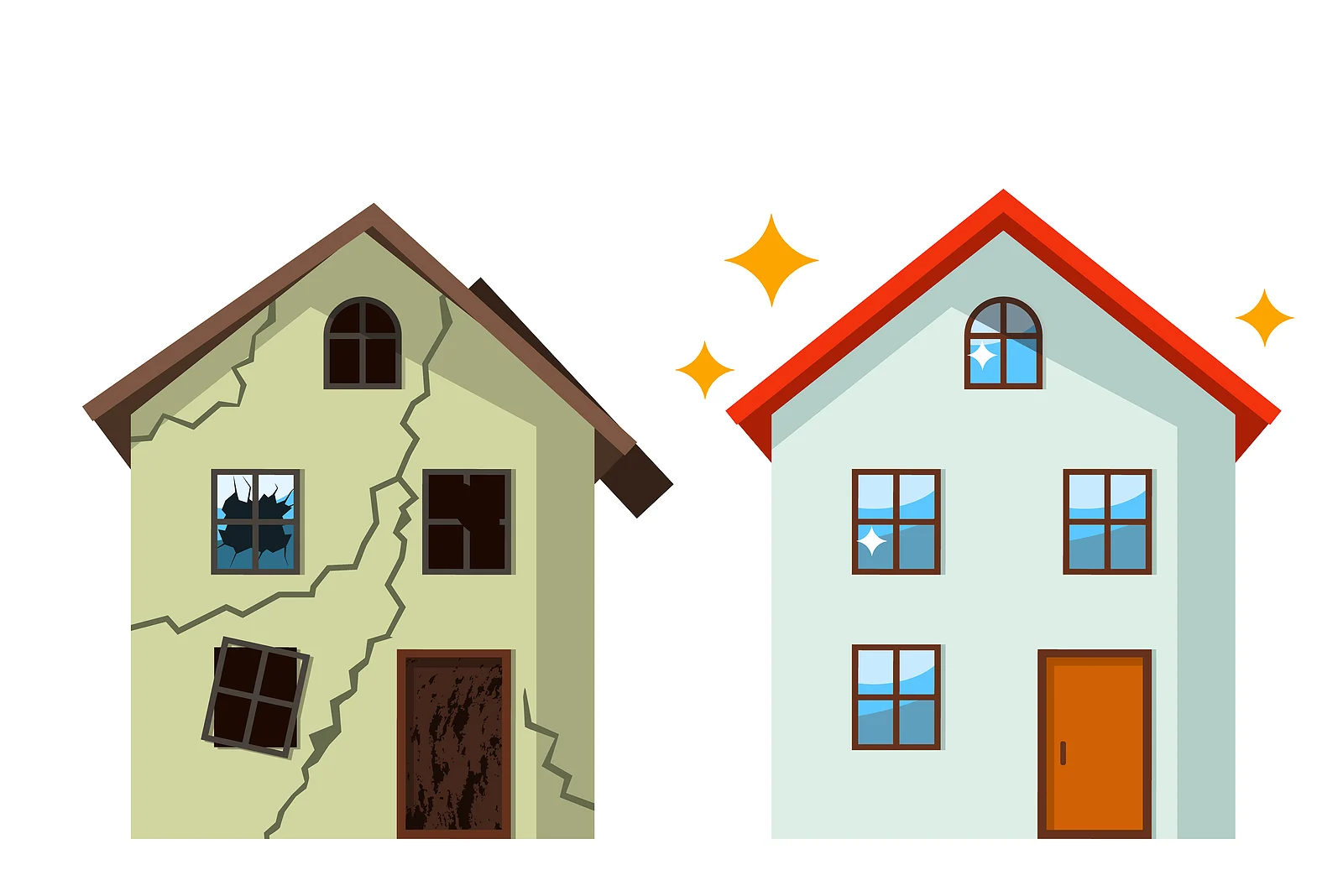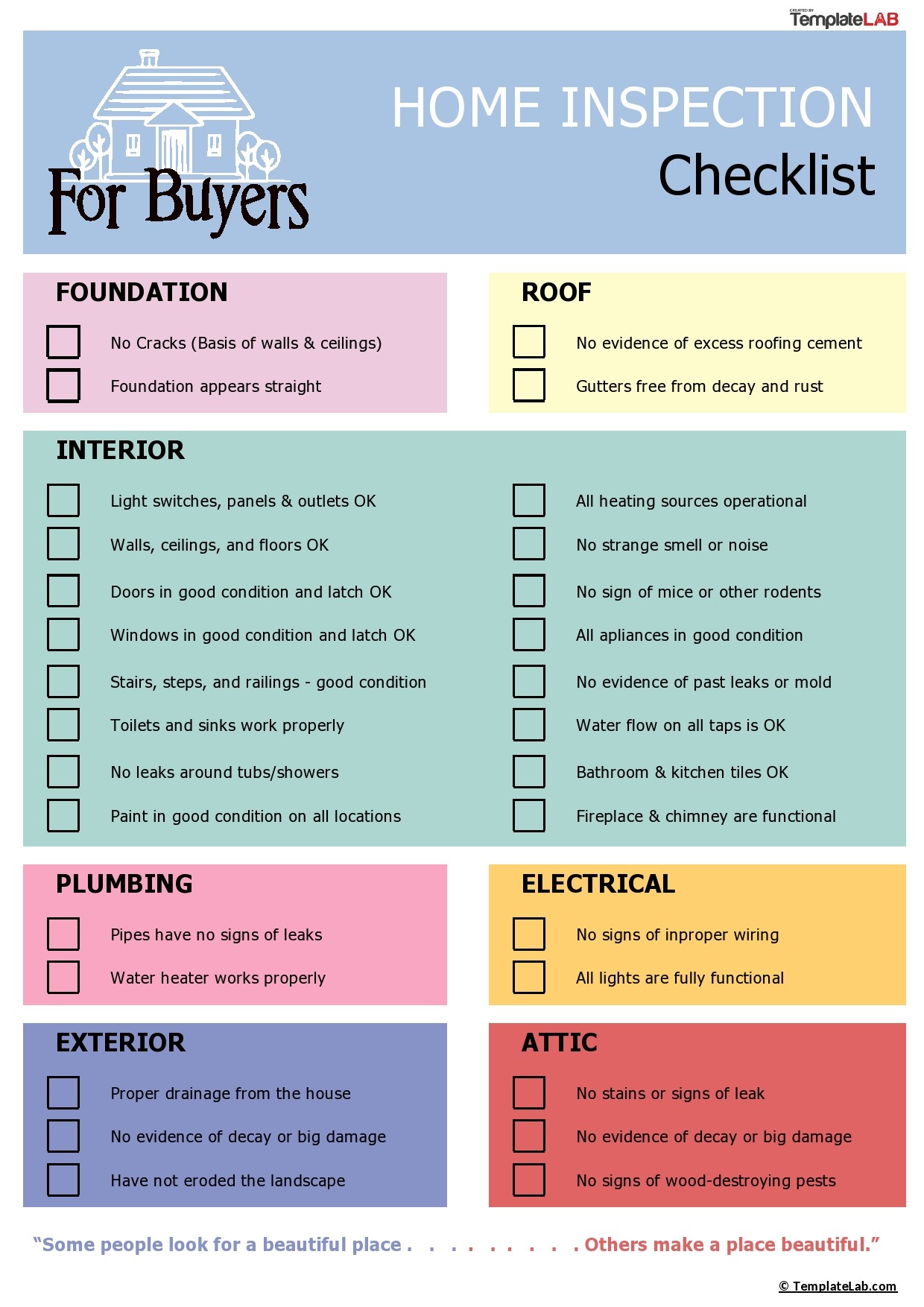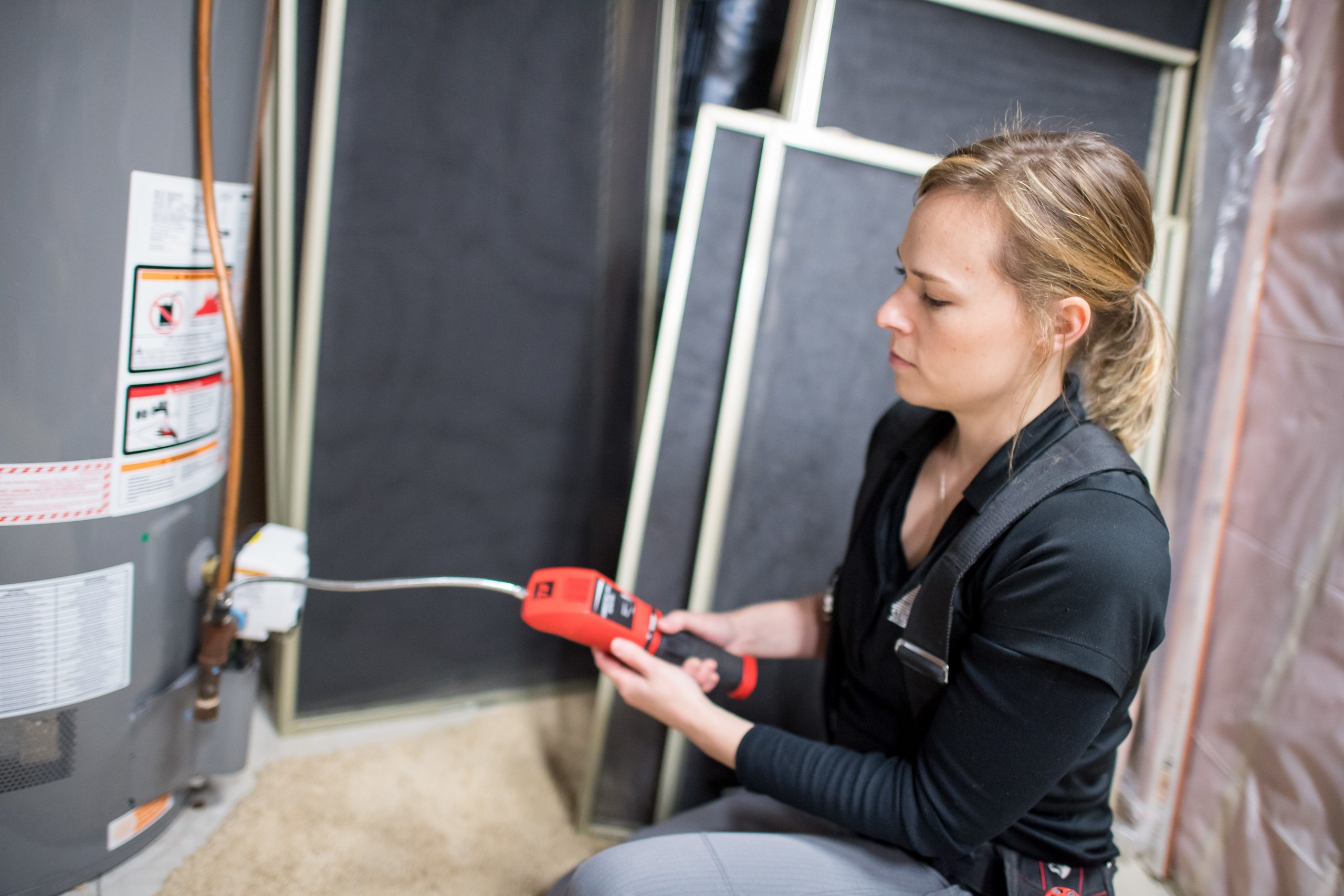Three Home Inspection Tips for Aspiring Homeowners

When homeowners were asked on Reddit what they wished they had known before buying their home, one of the most common responses revolved around the home inspection process. Most Redditors wished they were better prepared for it and had a better understanding of the process. As the buyer, you don’t have all the information about the house and are at a disadvantage compared to the seller, who has been living in the home and knows all its “creaks and cracks.” The home inspection presents the buyer with a great opportunity to uncover any hidden “skeletons” in the house and to make a more informed decision about their potential purchase.
Why Home Inspection Is Important
When making an offer on a house, there are contingencies that allow the buyer to back out of the purchase without penalty. The home inspection contingency grants the buyer time to inspect the home and renegotiate the terms of the sale, request repairs, or withdraw from the purchase altogether based on the assessment of the inspection. Therefore, a comprehensive home inspection instills confidence in home buyers regarding their decision to buy the house.
1. Do Prep Work Before Submitting A Purchase Offer
Find a Good Home Inspector
Once a home purchase offer is accepted, the clock starts ticking, and there is a limited window to conduct any necessary home inspections and assessments before the contingency expires. Therefore, it’s crucial to have a home inspector lined up before submitting an offer for the house. You may also need to have a list of tradespeople, including electricians, plumbers, HVAC technicians, roofing contractors, arborists, and foundation experts, ready to contact if the inspection requires expertise beyond that of the home inspector.
Why Find a Home Inspector Before Submitting an Offer?
The most important rule about hiring a home inspector is to find your own independent one. Avoid using the home inspector recommended by real estate agents to prevent any potential conflicts of interest. You want the home inspector to protect you and provide their best assessment of the home, regardless of whether you decide to purchase it or not.
Where To Find Home Inspectors?
Ask friends and family for recommendations, and check platforms like Yelp, Google, or Angi for reviews. Once you have a shortlist of inspectors, request a sample home inspection report and verify their liability insurance coverage and credentials. It’s also crucial to ensure that you have a good rapport with the inspector. Are they open to you tagging along and asking questions? Do they have a consultative style and welcome questions?
Understand Scope of Inspection
Some critical components, such as a septic system or sewer line, are not typically covered in a standard home inspection. You may have to pay extra for these assessments or find a plumber who can conduct them, especially for older houses. Ask the home inspector which components their inspection covers and which ones it doesn’t. Budget appropriately for the home inspection and any additional assessments from tradespeople. While some trades offer free inspections and quotes, others may charge for onsite visits.

bigstock-An-Old-Ruined-House-In-Cracks-303863080
What repairs to make first are heavily influenced by the inspection report.
Have the Proper Expectations about Home Inspection
It is essential to realize that all homes, regardless of age or quality, will have some issues. Even new homes, constructed by the most reputable contractors, are bound to have their share of imperfections. Setting realistic expectations and conducting thorough due diligence can significantly bolster your confidence and emotional resilience when buying a house.
Another crucial aspect to understand about home inspectors is that they won’t uncover every single issue with the home. Even the most skilled inspector may overlook certain issues. Anticipate that there may be undiscovered issues with the house even after the purchase. This is simply part of the process. The primary objective is to identify as many major issues as possible, particularly those that could incur significant repair costs.
Educate Yourself
In addition to relying on a professional home inspector, it’s beneficial to equip yourself with some basic knowledge to conduct your own preliminary inspection. Educating yourself about common issues and what to look for can enhance your understanding of the property and help you identify potential concerns.
Here are some steps you can take to prepare for the inspection process:
- Create Your Own Checklist: Develop a checklist of items to inspect based on your research and understanding of critical components beyond the curb appeal. This checklist can serve as a guide during your walkthrough of the property.
- Research Critical Components: Familiarize yourself with common issues associated with homes built before the 1980s, such as electrical, plumbing, lead, and asbestos (handy checklist). Understanding these potential concerns can help you spot red flags during the inspection process.
- Conduct a Pre-Inspection: If possible, conduct your own preliminary inspection of the property before the scheduled home inspection. This allows you to identify any visible issues or concerns that you can later discuss with the home inspector for further assessment.

Home-Inspection-Checklist-for-Buyers-TemplateLab.com_
A buyer checklist should be the start of your home visit (courtesy of templatelab.com)
2. Participate in the Home Inspection
Shadow the Home Inspector
On the day of the inspection, plan to take the day off and shadow the inspector to understand the details and ask questions about the property. Ask a relative or friend with construction experience to tag along with you to get their assessment of the home. Bring along a checklist of items to inspect and to take ample notes. Take as many photographs as possible, so you can refer back to them. Remember to ask the home inspector questions.
Please, note that if the home is still furnished, the inspector may not move furniture or furnishings due to liability concerns. In such cases, inform the seller and their agent of your intention to move furnishings to inspect hidden areas. Take responsibility for moving the furnishings yourself and inform the inspector of any areas requiring attention.
While shadowing the inspector, ensure that all items on their inspection list are thoroughly examined. If the inspector overlooks or refuses to inspect certain areas, inquire about the reasons behind their decision. Some inspectors may skip assessments of spaces like the attic, crawl space, or roof for various reasons. In such instances, consider hiring tradespeople to conduct additional inspections of these critical components. Despite the extra cost, separate inspections could reveal potential issues that may save you significant expenses in the long run.
Ask Home Inspector to Prioritize Issues
Most appliances and systems within a home have predetermined lifespans, including the air conditioner, heater, water heater, roof, and sewer lines. Consult with the inspector regarding the estimated ages of critical components nearing the end of their lifespan. This information allows you to prioritize necessary replacements and plan for future repairs. Request that the inspector categorizes issues discovered in their report based on urgency, indicating whether they require attention immediately, within a year, or in two years or more.

Structure-Tech-Home-Inspections
Many issues are not visible, your inspector can help find those issues.
3. Have Proper Expectation and Post Inspection Plan
Get Additional Assessment If Warranted
By the conclusion of the inspection, you should have gained insights into major issues and recommended fixes for the property, even before the formal report is finalized. If the inspector expresses concerns or uncertainties regarding a significant component, seek a second opinion from an expert promptly. Schedule consultations with necessary experts as soon as possible, as the contingency window has a set deadline. You may also explore the possibility of extending the home inspection contingency with the seller’s agreement. Investing a bit more in expert opinions can provide invaluable peace of mind regarding perhaps the most substantial financial decision of your life.
Review Inspection Report Closely
Upon receiving the inspection report, thoroughly review it. Pay close attention to every detail, especially if you were not present during the inspection. If the recommended fixes are not categorized by different timeframes and severity levels, create a structured breakdown yourself. Organize the issues into a 3×3 grid, delineating timeframes on the x-axis and severity levels (major, moderate, minor) on the y-axis. Obtain repair estimates for any major issues identified in the report to inform your negotiation strategy.
Devise a Negotiation Strategy
Before approaching the seller with the identified issues, devise a negotiation strategy. Prioritize which issues are non-negotiable and must be resolved for you to proceed with the purchase, and identify those you can live with. Present the seller with a prioritized list of issues, supported by the inspection report for credibility, to facilitate constructive discussions.
Negotiate with the Seller
Now negotiate with the seller in good faith. The goal is to reach a mutually beneficial agreement and not to maximize the wins. However, most negotiation is handled through the real estate agents, which can add additional friction and confusion. Be patient and understanding. Remember, know your limits and what you are willing to compromise on and not. At the end of the day, if you are not comfortable with the revised terms or prices, then walk away. It may be difficult due to the time, effort and expenses already invested, but don’t feel you need to buy and end up regretting the decision.
In addition, anticipate the mortgage lender sending an appraiser to evaluate the property’s condition and value. The appraiser should not be a substitute for conducting your own home inspection. Their role is to safeguard the lender’s interests, and any identified issues must be addressed before the lender agrees to extend the loan. For instance, FHA loans mandate roofs capable of keeping moisture out, thus highlighting the significance of identifying structural concerns upfront in the inspection process.
Final Thought on Home Inspection
Use the home inspection process as a vital tool to uncover potential issues with the property, enabling you to make a well-informed decision. While some buyers may be tempted to waive the home inspection contingency to strengthen their offer, it is unwise to waive the home inspection contingency. This contingency serves as your primary avenue to comprehend the genuine condition of the home, enabling you to adjust your bid accordingly or opt out without repercussions. Prioritizing a thorough home inspection not only instills confidence but also safeguards your interests throughout the home buying journey.




